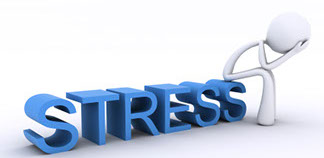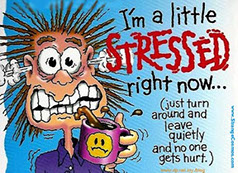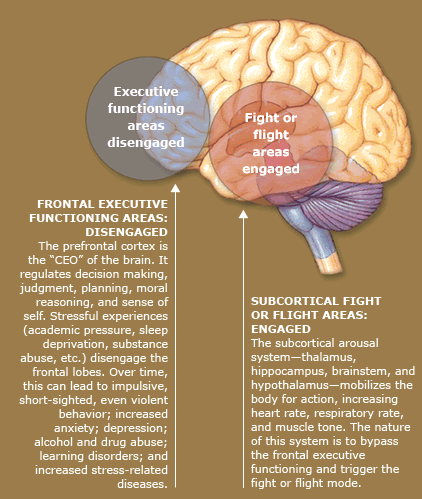
Omega Solutions
Behaviour Strategies and Training

Omega,
Sidsaph Hill,
Walkeringham,
DN10 4HP
Tel. 07540 707356 (Kevin) Email: khayes@omegasolutions.co.uk
07968 423795 (Julie) Email: sensory@omegasolutions.co.uk


Extensive research on the biology of stress shows that healthy development can be impeded by excessive or prolonged activation of stress response systems in the body. This has lifelong implications for learning, behaviour and health.
Learning how to cope with adversity is an important part of healthy child development. When we are threatened, our bodies automatically prepare us to respond by producing stress hormones such as adrenaline and cortisol. This is a function of the most primitive part of our brain which generates the Flight - Fight - Freeze response designed to enhance our survival.
When a young child’s stress response systems are activated within an environment of supportive relationships with adults, the physiological effects of increased heart rate, elevated blood pressure and the release of stress hormones are buffered and brought back down to baseline in synchrony with the attending adult.
In its simplest form this buffering takes place when a baby cries. Babies can cry for several reasons; they might be hungry, wet, in pain or feeling lonely/insecure. In crying the physiological changes that take place include; increased heart and breathing rates, elevated blood pressure and the release of stress hormones. On hearing the crying these same physiological effects are felt by the mother. In attending to the baby by talking, touching, picking up, cuddling, etc. the parent quickly returns to baseline levels and after a short time, when their immediate needs are met, so will the baby.
This cycle of Stress - Response - Soothing - Calm is repeated many, many times in the early years and the result is the development of healthy stress response systems. However, if the stress response is extreme and long-lasting, and supporting relationships are unavailable to the child, the result can be damaged, weakened systems, with lifelong repercussions.

When faced with a crying baby, it may be useful to ask yourself the following questions:
Why am I choosing this response?
Do I want my baby to stop because I want/need her to or because she feels safe, secure and comforted?
comforted?
If I respond in this way what is she learning about me and about the world?
If I were a crying baby and was upset, how would I want my mother to respond?
It’s important to distinguish among three kinds of responses to stress: positive, tolerable, and toxic - these three terms refer to the stress response systems' effects on the body, not to the stressful event or experience itself:
Positive stress response is a normal and essential part of healthy development, typically brief increases in heart rate and mild elevations in hormone levels. Situations that might trigger a positive stress response are the first day at nursery or sleeping in a different room.
Tolerable stress response activates the body’s alert systems to a greater degree as a result of more severe, longer-lasting difficulties, such as the loss of a loved one, a natural disaster, or a frightening injury. If the alert system activation is time-limited and buffered by relationships with adults who help the child adapt, the brain and other organs recover from what might otherwise be damaging effects.
Toxic stress response can occur when a child experiences strong, frequent, and/or prolonged adversity—such as physical or emotional abuse, chronic neglect, caregiver substance abuse or mental illness, exposure to violence, and/or the accumulated burdens of family economic hardship—without adequate adult support. This kind of prolonged activation of the stress response systems can disrupt the development of brain architecture and other organ systems, and increase the risk for stress-related disease and cognitive impairment, well into the adult years.
Stress and the Brain
Good night, sleep tight?
Research carried out a couple of years ago into the effects of infant sleep training (Cry It Out), where the mother does not respond to the baby crying and the baby is left to self soothe had some notable results. The research used saliva test kits to study different stress markers, such as cortisol levels, in the babies and their mothers in a hospital-based situation.
The researcher, Wendy Middlemiss, said; "We found that while the practice was successful in helping infants to settle themselves to sleep without crying, infants' physiological stress levels remained very high even when mothers' stress responses were lower."
Middlemiss also went on to say that her research indicates that, at least during the early days of sleep training, prolonged maternal non-responsiveness is associated with continued high levels of infant stress. She notes this could be a concern if infants' levels of stress continued to remain high as their physiological stress responses are developing in that first year. Toxic stress can cause infants to develop an over-active stress response system, which can result in later difficulties regulating social and behaviour responses. These difficulties can include attention disorders, anti-social behaviour and possibly even obesity.
It has been a reasonably widely held view that allowing a baby to cry for 20-30 minutes in an otherwise secure and attentive home environment would not create any long-term problems. However this study suggests that during sleep training babies may no longer cry at night even when they are distressed. As a parent that would worry me.
Superficially the Cry It Out strategy would appear to work for many families - but at what cost? Relatively short-term results but possibly long-term problems?

Note the effects that stress has in shutting down the thinking, rational parts of the brain, handing over control to the more primitive parts of the brain. We don't think clearly when we (adults, children, babies) are stressed.
Copyright © Kevin & Julie Hayes 2021